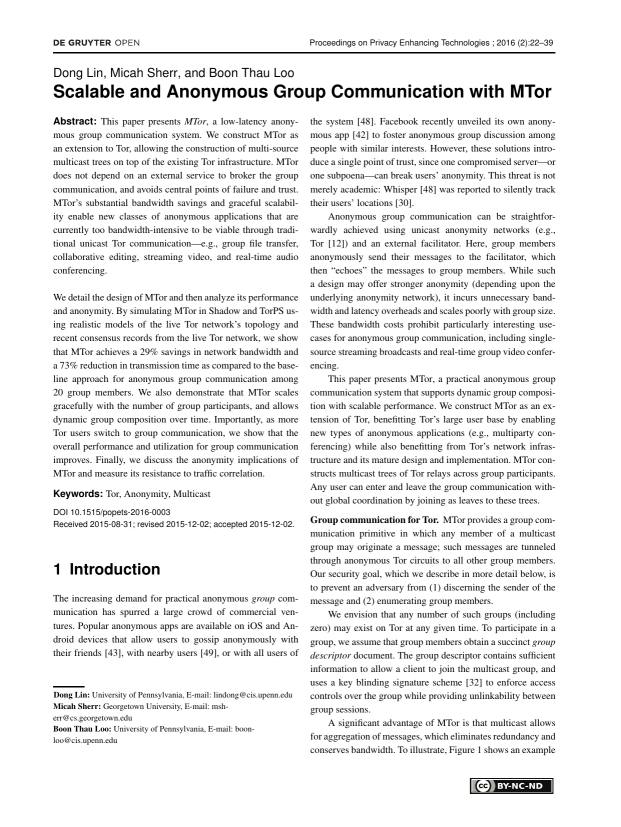Scalable and Anonymous Group Communication with MTor
Authors: Dong Lin (University of Pennsylvania), Micah Sherr (Georgetown University), Boon Thau Loo (University of Pennsylvania)
Volume: 2016
Issue: 2
Pages: 22–39
DOI: https://doi.org/10.1515/popets-2016-0003
Abstract: This paper presents MTor, a low-latency anonymous group communication system. We construct MTor as an extension to Tor, allowing the construction of multi-source multicast trees on top of the existing Tor infrastructure. MTor does not depend on an external service to broker the group communication, and avoids central points of failure and trust. MTor’s substantial bandwidth savings and graceful scalability enable new classes of anonymous applications that are currently too bandwidth-intensive to be viable through traditional unicast Tor communication—e.g., group file transfer, collaborative editing, streaming video, and real-time audio conferencing. We detail the design of MTor and then analyze its performance and anonymity. By simulating MTor in Shadow and TorPS using realistic models of the live Tor network’s topology and recent consensus records from the live Tor network, we show that MTor achieves a 29% savings in network bandwidth and a 73% reduction in transmission time as compared to the baseline approach for anonymous group communication among 20 group members. We also demonstrate that MTor scales gracefully with the number of group participants, and allows dynamic group composition over time. Importantly, as more Tor users switch to group communication, we show that the overall performance and utilization for group communication improves. Finally, we discuss the anonymity implications of MTor and measure its resistance to traffic correlation.
Keywords: Tor, Anonymity, Multicast
Copyright in PoPETs articles are held by their authors. This article is published under a Creative Commons Attribution-NonCommercial-NoDerivs 3.0 license.

